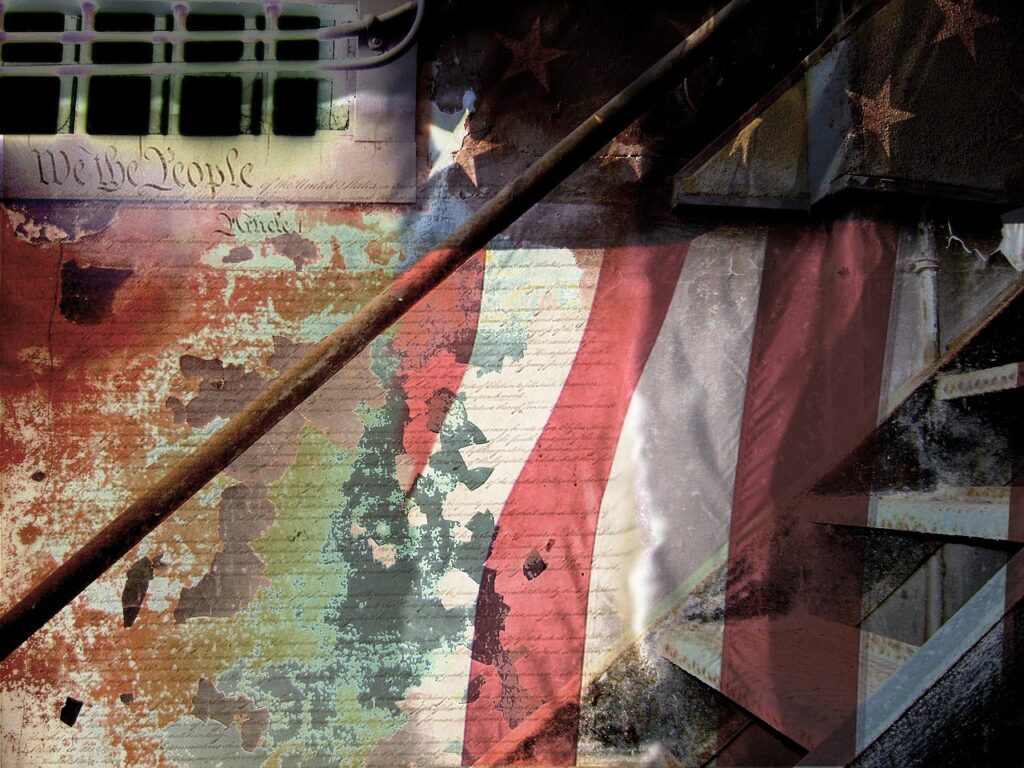There are empty souls at every level of governing and living.
What is the constitutional obligation of the Supreme Court? Its intention is to be the measure, protector, and guide, for the rights of individuals—ensuring the promise of equal justice under law.
Freedom, and its quest, is a non-linear dialogue and is contradictory in its foundation. It seeks to liberate individuality from the dogma of tyranny. Tyranny being cruel, unreasonable, or arbitrary use of power—concentrated power and militant strength of individual leaders of tribes, territories, states, and countries, who impose (or attempt to do so) their beliefs onto others through behaviors inherited from the primal state of the animal kingdom of the past.
In the evolution of governing, much of this dominant behavior is assumed to be the right and entitlement of governments or leaders to use the powers given to them to dominate the masses.
The Enlightenment or Age of Reason (18th century) inspired the majority of white-Christian settlers who solidified control of the lands of the indigenous tribes of the Americas. These white-Christian settlers were male landowners derived from the patterns and habits of European monarchies.
As these ideas played out in the virgin territories of the Americas, white, male landowners were the only peoples granted access to power and decision making . The story of the excluded is universal—indigenous peoples, women, the enslaved, laborers, indentured servants, and all other non-white peoples. Those outside the circle were not included in having a sense of self.
In this evolving mix, the ideals of a democracy brought a declaration of sovereignty—inalienable rights to individuals—protecting them from dominant, narcissistic egos.
This pathological characteristic—a lack of concern for others—continues to the present day in the dominant ego-identity of the majority of males in roles of leadership, especially in the world of ownership—the wealthy and those with power.
The story of democracy, the ideal of universal individual rights, is filled with contradictions and captures this core political conflict of interaction with others.
The prime issue being the contradictions between power and control without including the character of those who are subject to the control.
“Ordaining of laws in favor of one part of the nation to the prejudice and oppression of another is certainly the most erroneous and mistaken policy . . . An equal dispensation of protection, rights, privileges, and advantages, is what every part is entitled to, and ought to enjoy.”
Benjamin Franklin
I sense this to be at the foundation of the control of power’s management in dealing with abstract concepts of authority and the acceptance of the character of the person who holds its power.
Today we have produced Supreme Court justices like Clarence Thomas. This man represents the archetype of the psychopathic, ego narcissist in his self concept of what he feels, conceives, believes; using the power bestowed upon him through our system of government to dictate his idea of justice—forcing upon the masses a disadvantage so grave as to enable only a few in their quest for power over the many. The irony of using the title Supreme Court Justice to describe such a man is an insult to every American citizen in this regard.
Let us embrace how far we’ve come as a unified nation, securing for ourselves up to this moment in history, the rights established per The Constitution, from egregious overreach by the wealthy and powerful. Have we evolved enough over the centuries to secure our freedoms through applying the law, as it has been established, by holding those accountable who violate their oaths of office and their sacred obligations to those whom they serve?
As Americans we have received a most precious gift—the great experiment of democracy. Our task is to prevent the Union from destructive fragmentation. It begins with each of us being willing to take responsibility, just as we ask of our elected officials. We are required as citizens of a free nation to educate ourselves on the rules of the game, plainly, civics, how our government works. Without this knowledge we are at a grave disadvantage; not only as to what can be lost, but how easily it can be taken from us. If, as a free people, we don’t understand what we have, how can we establish the strategies needed to hold on to it? How can anyone defend and protect what they don’t understand?
” . . . History will not judge our endeavors—and a government cannot be selected—merely on the basis of color or creed or even party affiliation. Neither will competence and loyalty and stature, while essential to the utmost, suffice in times such as these. For of those to whom much is given, much is required . . . “
John F. Kennedy
If we believe our nation was founded on higher principles governing society, that we as Americans are exceptional in our exampling of being as a beacon of hope for all the world . . . Do we or do we not stand for freedom and justice for all?
We’re about ready to find out . . . buckle up!

